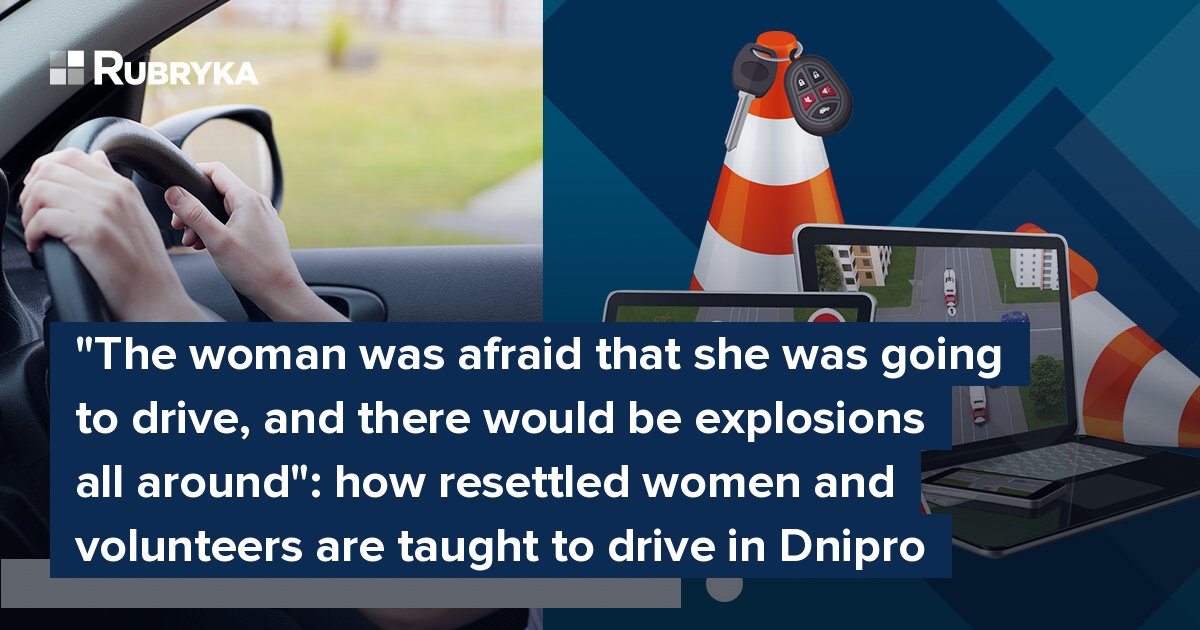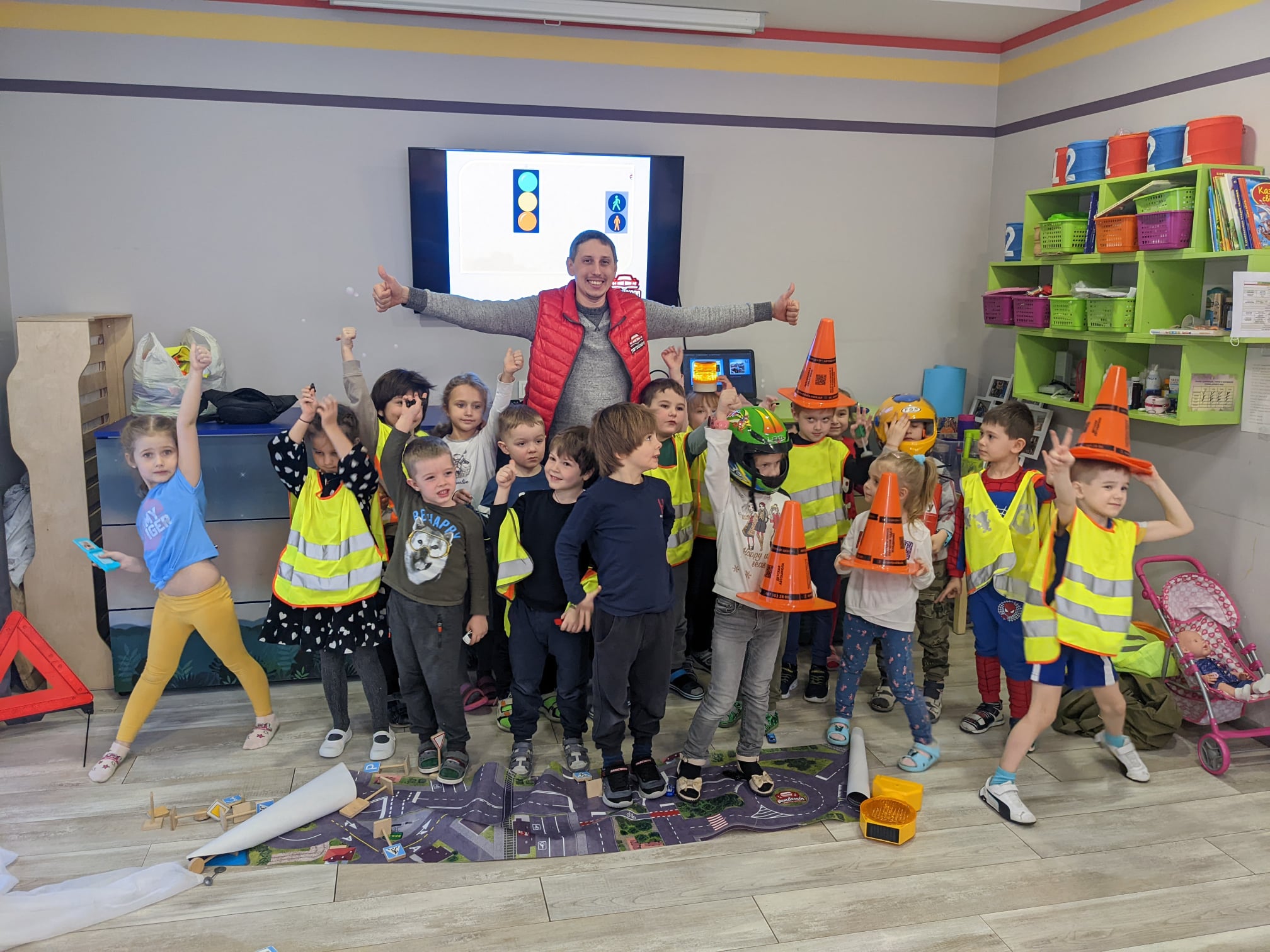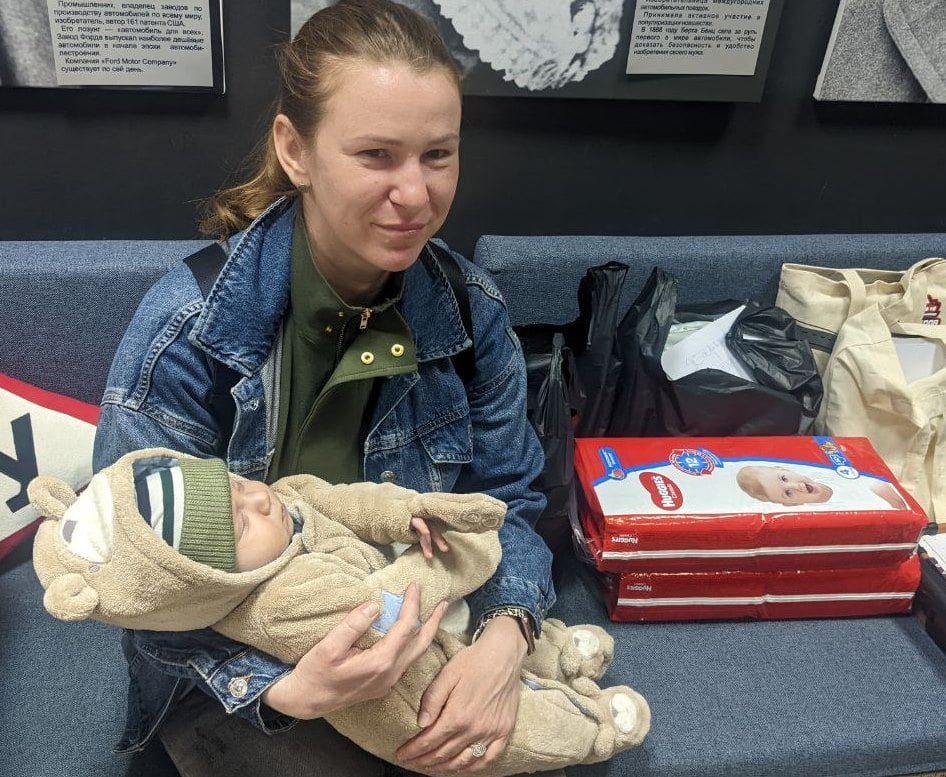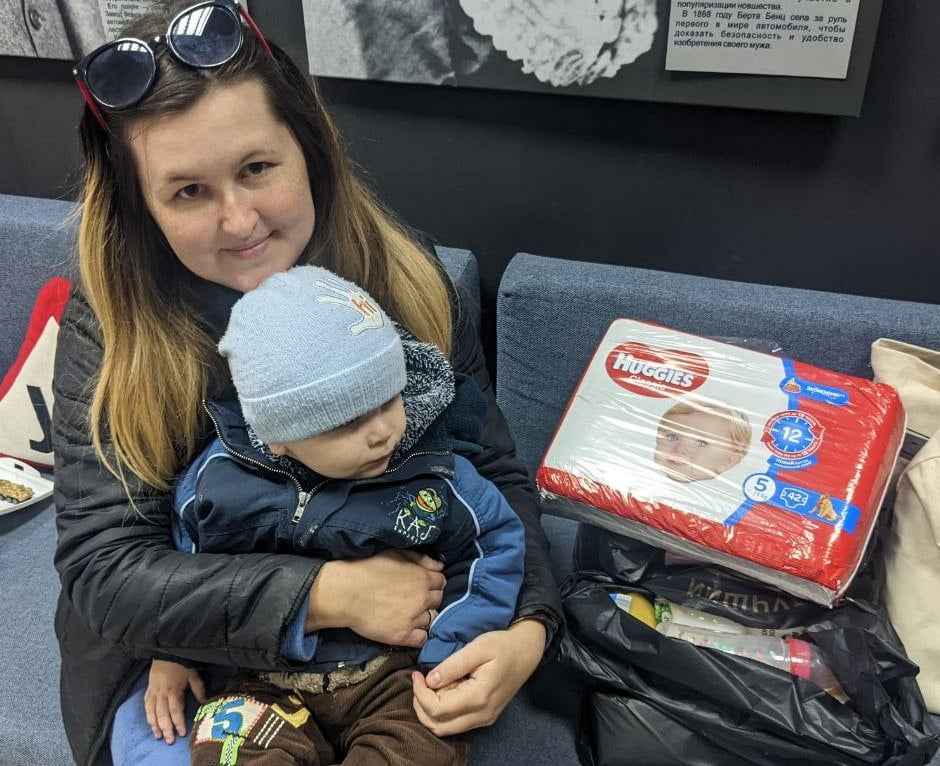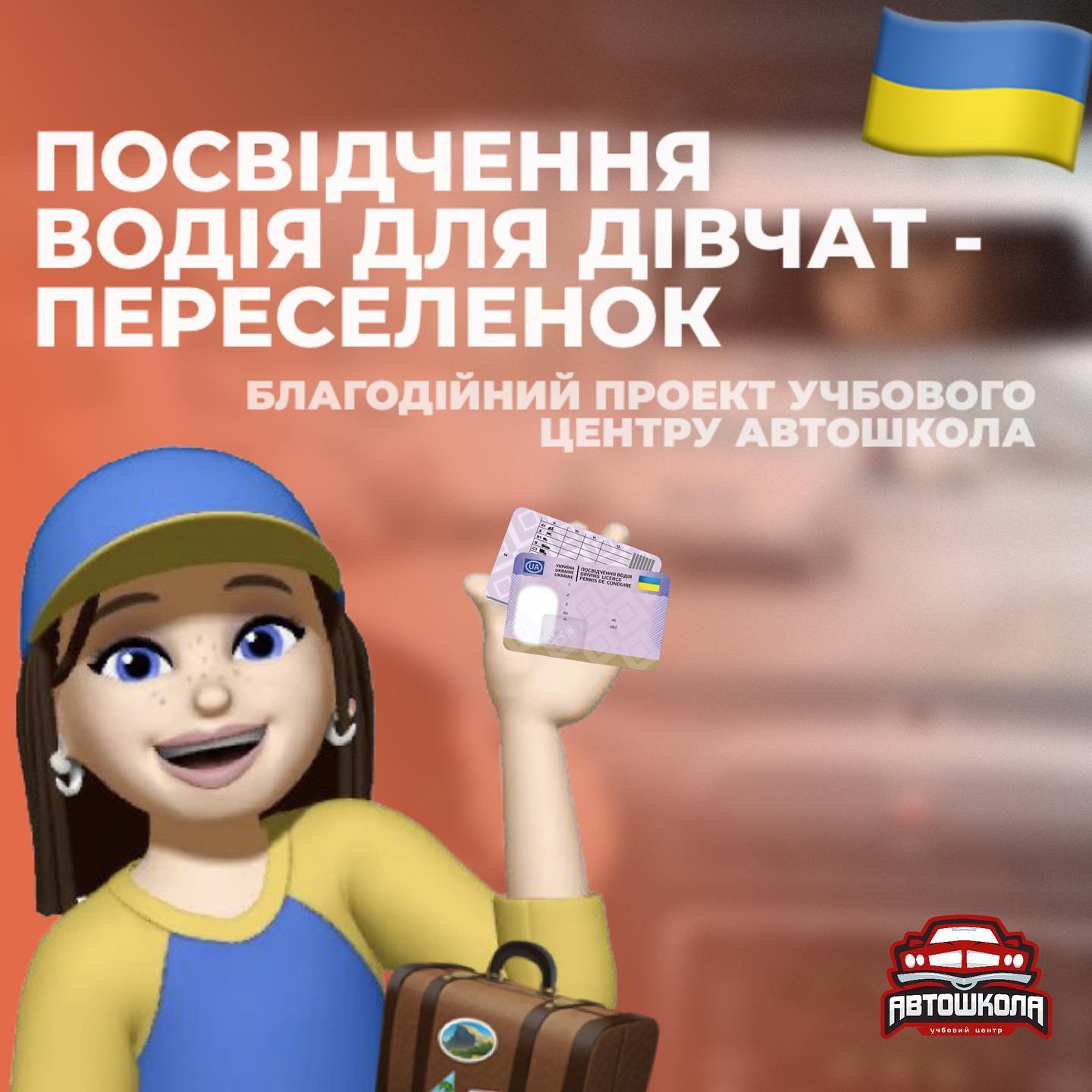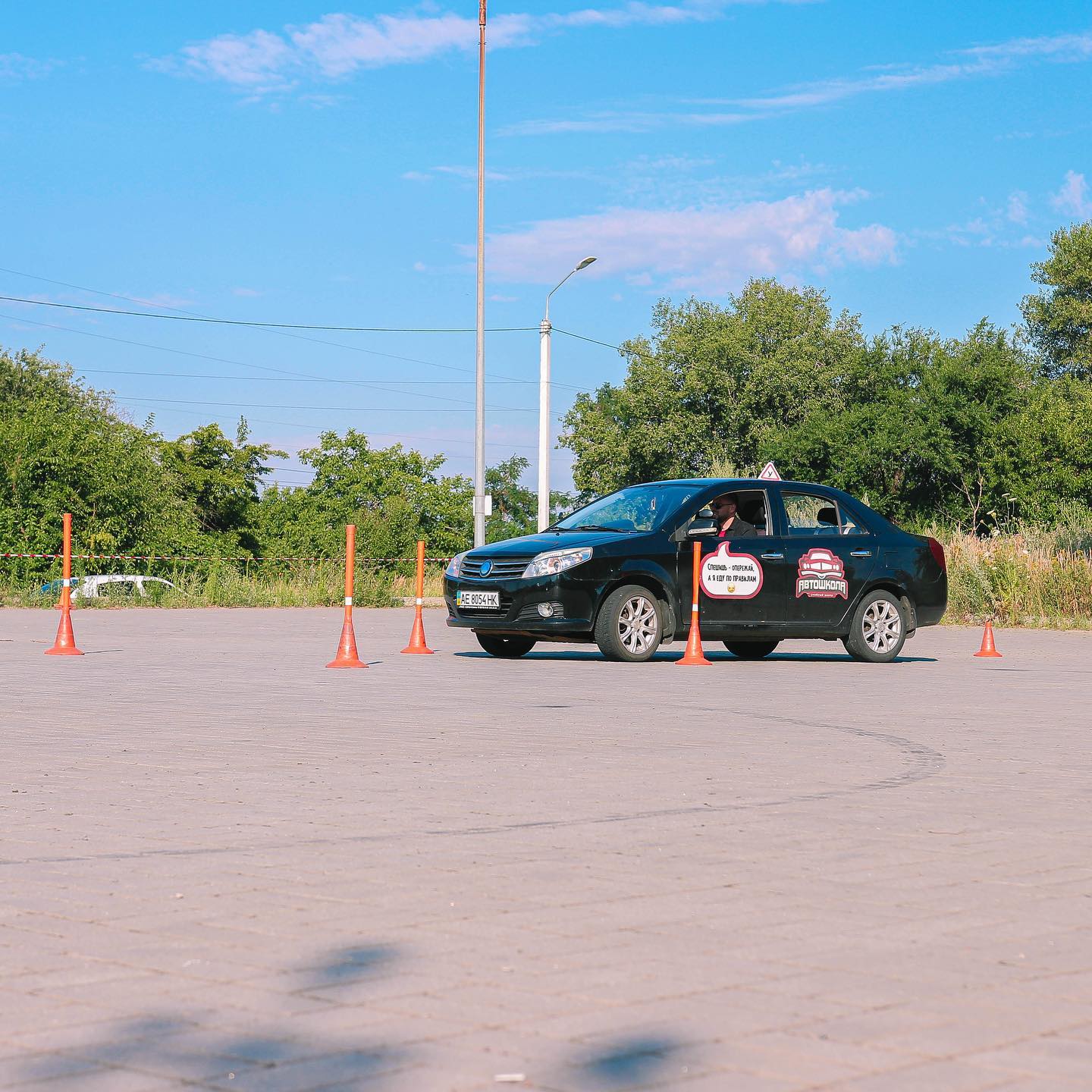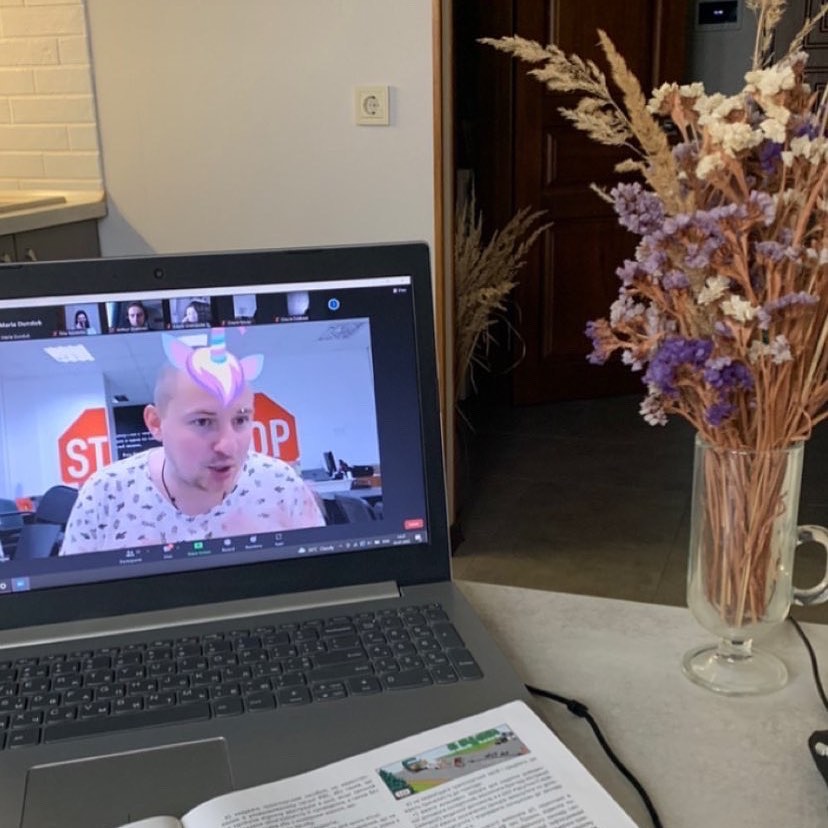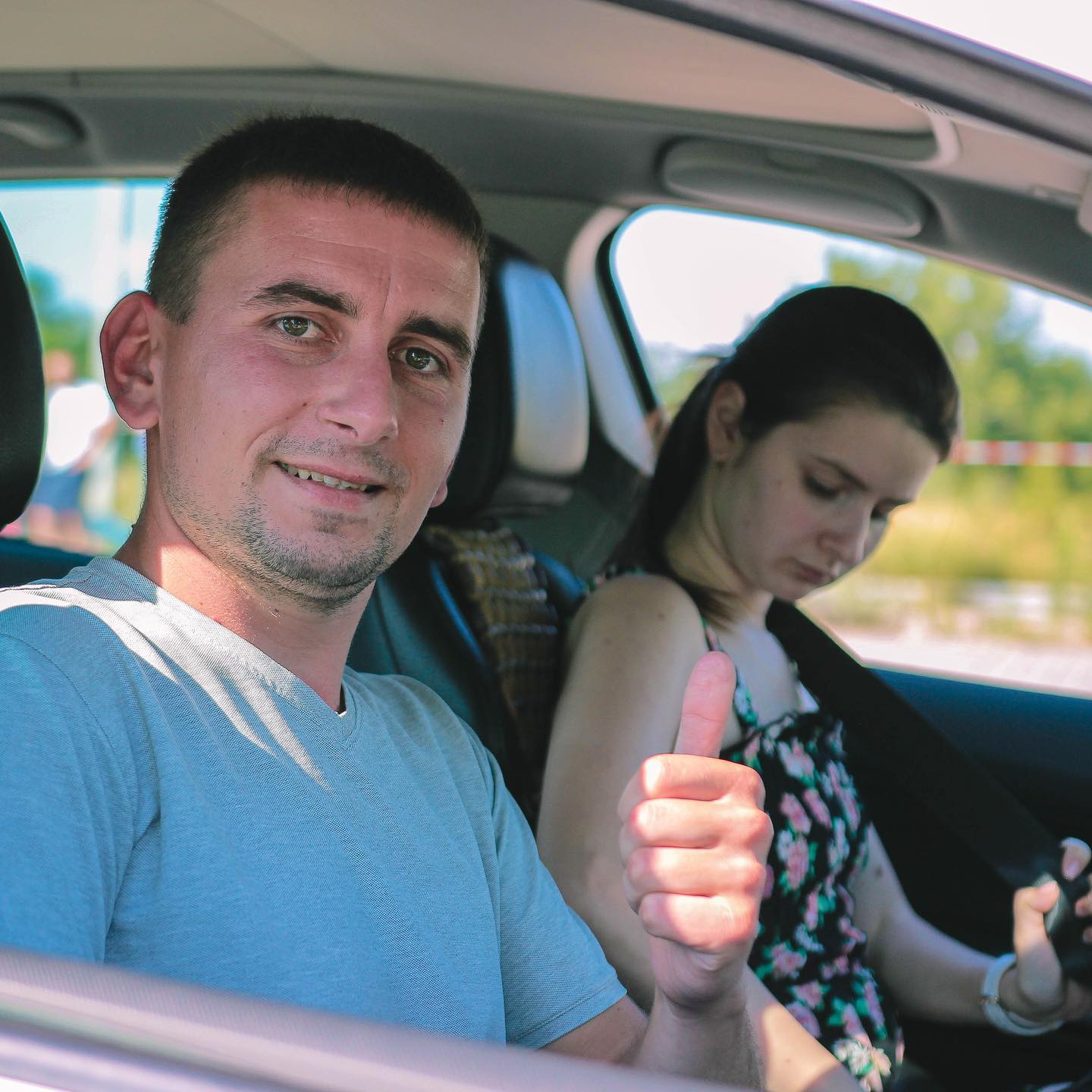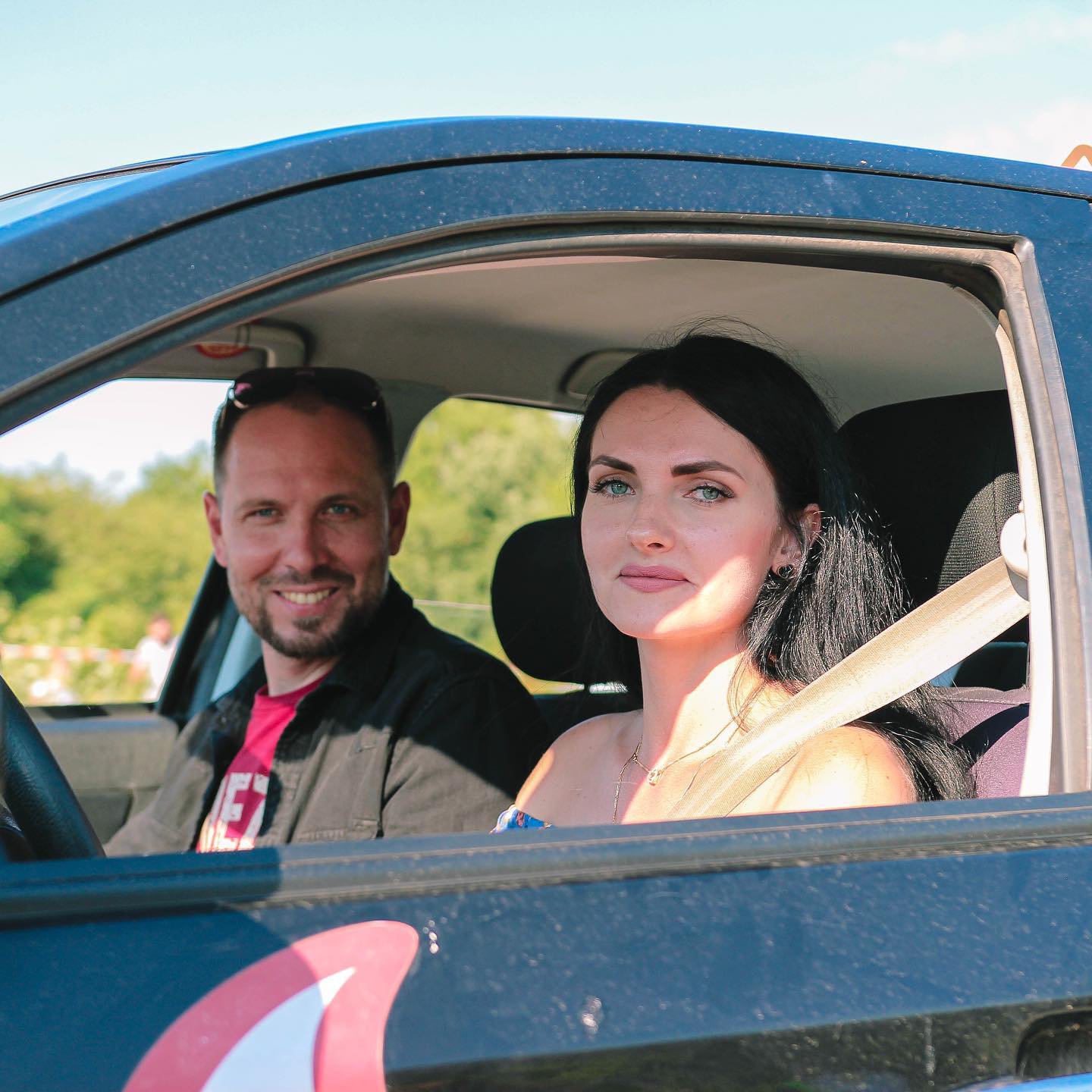
"Something has to be done," said the founder of the All-Ukrainian online driving school Mykyta Nemyatyi. It was one of the team's first meetings after the beginning of the full-scale russian invasion.
They immediately began to deliver humanitarian aid and teach IDPs and volunteers the traffic regulations free of charge. But because of their initiative, they even encountered hate. Why? And how important it is now to be able to drive a car, we will tell you in this article.
What is the problem?
З викладачів у волонтери
On February 24, Mykyta Nemyatyi had to think: how to save the equipment with all the information? The building where the office was located was closed to visitors: the guard did not let anyone inside. And there were laptops and computers which stored business and student data. Mykyta managed to get into the premises by detours (through a hardware store that was evacuating its goods).
I thought: "I have 15 minutes. What is most valuable? I took all laptops, money, and driving school license. Our accreditation and client registration accesses are stored on the accounting computer processor. I loaded the equipment into shoppers, took it to the car, and drove it home," the man shares.
Later that day, they were allowed to enter the building. Mykyta gathered the whole team and gave out the salary. Together they decided to stay in touch with each other.
But they did not sit without work for long: on the third or fourth day, they started creating a short course on how to behave in emergencies. People were explained:
- where to evacuate;
- what to do when there are air raid sirens;
- where you can't drive;
- what should be in the car during evacuation;
- how to behave at checkpoints.
It turned out that many Ukrainians needed the help of "professional" drivers during the war. Driving school instructors began transporting people abroad or from a dangerous Ukrainian city to a safe one. Mykyta Nemyatyi says:
"If people could not overcome the distance, our instructors used their cars or transported families in their cars. Mostly families and elderly people asked for help. We drove together 1000 kilometers, 1500, 2000… The record is 3000! We brought an elderly man from Odesa to Berlin. The instructor drove to the Ukrainian border, and there, the car's driving was taken by our workers who had the opportunity to evacuate from Ukraine after the start of a full-scale invasion."
In a few months, 70-80 clients applied for help. If there was an opportunity, they paid the instructors for the evacuation. If not, at least they covered the cost of gas.
In the same way, workers evacuated abandoned cars abroad to their owners. Once, the driver was taking a car out of Boryspil, which had a flat battery. We had to ask the soldiers who remained in the city to give a "jump-start."
The employees made out all the necessary documents for transportation. What situations did we have? The car is in Kyiv, it needs to be transported to Poland, and the papers for it are in Spain. The employees of the Training Center tried to solve such a puzzle.
While the drivers of the Driving School were traveling throughout the country, the Dnipro office was engaged in work with humanitarian aid. "We started going to volunteer organizations that were already working in Dnipro. We agreed that we would deliver food to the shelters. Then they started concentrating humanitarian aid in the office and called on people to bring what they had. In addition, we collected money, which was used to buy clothes and medicines," says Mykyta about volunteering.
But after a few weeks, I still had to concentrate on my main activity — teaching people traffic regulations.
A life-saving skill
According to Mykyta Nemyatyi, driving a car is a vital skill, but it became a lifesaver during the war. It was in cars that people left the territories that were shelled.
Rows of thousands of cars moved under constant missile and artillery fire from Kyiv, Kharkiv, Mykolaiv, Mariupol, and other cities and towns. People with several cars left them open on city streets so that other Ukrainians could use them.
But the skill of driving itself remained important. After all, the drivers had to be as careful as possible to avoid running into ammunition and maneuvering on the road battered by debris.
Sometime after the full-scale invasion, the Driving School was flooded with applications from people who wanted to know how to get into the car and leave urgently. They did not understand at all what to do behind the wheel, but in the new conditions, they desperately needed this knowledge.
What is the solution?
Help women get behind the wheel
"We started working with women who want to go somewhere and do not understand what a car is at all. Two instructors were assigned for this, they taught free of charge and provided basic knowledge," says Mykyta Nemyatyi.
This is an extreme case. The center's founder adds that you should complete at least 20 practical lessons to establish the driving skill firmly. But even those half an hour gave a rough idea of driving a car.
The Driving School started working in this direction in March. At that time, five people signed up for training. In April, the team gathered for another meeting to discuss further plans.
"We came up with the idea of making a quota for resettled women: to teach them about traffic regulations for free. We started thinking about how to do it and collecting applications," says Mykyta Nemyatyi.
How does it work?
Driving for resettled women
In the All-Ukrainian online driving school, they decided to create groups only of resettled women who need to learn how to drive, not a driver's license.
We received 10,000 applications, and future female students were selected from them. "We tried to single out those who specified what skills are needed. Personal history was important. For example, we were most often told that the man joined the Armed Forces and had a car, but the woman did not know how to drive. There was another story: the parents' health deteriorated sharply, and the woman had to evacuate them, but only the father, who was not feeling well, knew how to drive the car," Mykyta Nemyatyi shares about the selection process.
Then the driving school launched two online training groups for resettled women. The theoretical block was taught to them, consultations and seminars were held, and the manager answered questions during the course. Everything was free. For customers in peacetime, it would cost about 5 thousand hryvnias. But it's not about money at all, says the founder.
The first two groups of IDP women who were taught traffic rules at the Driving School
"This should be considered not from the point of view of the economy, but the value point of view. You can buy a driver's license anywhere. The most tricky thing here is to break people's perception that a driving school is a kind of assistant at the Service Center, so to speak, "to help buy the license." We don't help with this, we teach driving."
Women studied traffic rules online from different cities of the country, and instructors were selected on the spot in the Dnipro office. Unlike the online course, the driving instructor was paid for by the women themselves. It would be difficult to do this at the expense of a driving school because the amount includes the depreciation of the training car and fuel. No gas station would fill up a car for free.
Even before russia's full-scale invasion, the team created a network of driver-instructors throughout the country, as Mykyta Nemyatyi says, something like freelancers. If the student lived in Mykolaiv, the instructor was also found there, and then the exam was taken at the Mykolaiv service center.
In addition, seminars with a psychologist were organized for the students because they had to work through their fears. "One of the women said that she was evacuating with her husband in a car. The car in front of them drove into a pit where there were remnants of ammunition. The car exploded. Then the man had to drive very carefully so as not to run into the same wreckage. The woman was afraid that she would drive, and there would be explosions around her."
Does it really work?
Two groups of 50 resettled women graduated from the Driving School. Now a third free group has been launched — already for volunteers.
"Why for them? Because they do everything for the fighters, and no one creates anything for them. We selected a little more than 30 students. But the criteria were strict. Not just "I'm a volunteer," and that's it. A person had to belong to a foundation or organization so that their manager could give a recommendation over the phone: this or that person definitely works for the fund," says Mykyta Nemyatyi.
When spreading information about the free course, the team did not emphasize that they do everything with their own money. It became a problem.
"Many IDPs believed this is a state program, and we must make concessions. People did not behave very correctly with the customer service manager. They asked: "Why didn't you select me? I really need it." They filled out an application on the website, in the mail, and on Instagram at once. Then they wrote offensive messages: "Why hasn't anyone answered me yet? It's all a scam or PR." Several people said: "Communicate with me only in russian." The manager had to switch from Ukrainian," Mykyta Nemyatyi shares.
People did not understand that the training organized for them was entirely the initiative of the teachers. The team does it alone, without anyone's help. Although the project was submitted for several grants to receive additional funding, they were rejected everywhere. Mykyta says that the funds would be used to open more groups or cover practical sessions with an instructor.
What's next?
The Driving School plans to open another free group for volunteers if all goes well with the current one. Or, as Mykyta Nemyatiy says, "if this one doesn't turn out to be toxic," because the attitude towards the school team in the spirit of "you owe us" greatly offends its employees.
As a founder, Mykyta Nemyatyi is proud that the business continues to grow — the team is growing. Currently, 25 people work in Dnipro, and another 50 instructors work throughout the country. A few were hired recently; among them, there are even resettlers. It is extremely difficult to select freelance instructors in different cities, sometimes even cases arise:
"One instructor seems to have been from Mukachevo or Uzhhorod. They asked what kind of car he had — manual or automatic. He replied that both options. We continue the conversation. What car? He: Skoda Octavia. We: "And the second one?". "I have one." We were surprised: "How can it be then?". The driver says that if a person uses the manual transmission, they use it fully. And if it's automatic, I switch gears for a person. And the student just presses the "gas-brake," and that's it.
Mykyta Nemyatyi also emphasizes that his business now pays all taxes — this is extremely important for the military economy. "The country needs money for the army. The more businessmen who pay taxes, the better it will be for the state. We are proud that we work openly and can still help."
How to help the project of free training of IDP women and volunteers?
First of all, you can help the project with information. Mykyta Nemyatyi wants more people to know about the initiative. Therefore, we are leaving the website, Facebook, TikTok, and Instagram of the Driving School Training Center. And on the company's YouTube, you can find helpful information for novice and experienced drivers.
No money is needed for the project. But! The Driving School team will be grateful if there is a volunteer who will help win a grant to support the initiative (or knows of any programs that provide funds for such stories). The employees of the Training Center tried to fill out the grant documents themselves, but they never succeeded. So, write to us if you know how to fundraise and want to help. And we will already connect you with Mykyta Nemyatyi.
And, of course, come to study at the Training Center. There, they are very happy to train new drivers responsible for traffic rules and driving.


